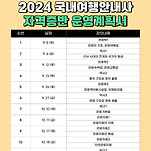<p>Music&#160;Therapy&#160;music&#160;therapy&#160;Namgung&#160;is <br><br>It&#160;is&#160;a&#160;special&#160;psychological&#160;therapy&#160;that&#160;allows&#160;music&#160;therapists&#160;to&#160;systematically&#160;listen&#160;to&#160;music&#160;or&#160;perform&#160;appropriate&#160;performance&#160;behavior&#160;in&#160;a&#160;therapeutic&#160;situation,&#160;resulting&#160;in&#160;individual&#160;physical,&#160;psychological,&#160;and&#160;emotional&#160;integration&#160;and&#160;desirable&#160;behavioral&#160;changes.&#160;The&#160;effect&#160;works&#160;not&#160;only&#160;on&#160;the&#160;client&#39;s&#160;mood&#160;but&#160;also&#160;on&#160;his&#160;physical&#160;function,&#160;and&#160;through&#160;music,&#160;he&#160;understands&#160;that&#160;mental&#160;and&#160;physical&#160;health&#160;is&#160;affected&#160;by&#160;psychological&#160;causes&#160;and&#160;restores&#160;and&#160;promotes&#160;health&#160;through&#160;the&#160;function&#160;of&#160;music.&#160;Music&#160;therapy&#160;programs&#160;provide&#160;a&#160;safe&#160;environment&#160;and&#160;structure&#160;for&#160;personal&#160;expression&#8206;&#160;and&#160;emotional&#160;needs,&#160;so&#160;it&#160;can&#160;be&#160;said&#160;to&#160;be&#160;a&#160;vessel&#160;to&#160;express&#160;and&#160;accept&#160;the&#160;client&#39;s&#160;painful&#160;emotions,&#160;so&#160;it&#160;helps&#160;them&#160;feel&#160;secure&#160;in&#160;reflecting&#160;on&#160;themselves&#160;and&#160;accepting&#160;reality&#160;as&#160;they&#160;are.&#160;One&#160;of&#160;the&#160;problems&#160;of&#160;children&#160;with&#160;disabilities&#160;is&#160;that&#160;communication&#160;at&#160;the&#160;verbal&#160;level&#160;is&#160;very&#160;difficult,&#160;and&#160;music&#160;as&#160;a&#160;non-verbal&#160;means&#160;of&#160;communication&#160;functions&#160;as&#160;an&#160;effective&#160;medium&#160;for&#160;linking&#160;healers&#160;and&#160;children.&#160;This&#160;is&#160;necessary&#160;to&#160;effectively&#160;promote&#160;treatment,&#160;and&#160;especially&#160;for&#160;autistic&#160;children,&#160;it&#160;enables&#160;human&#160;contact&#160;with&#160;children&#160;and&#160;others,&#160;and&#160;helps&#160;expand&#160;communication&#160;opportunities&#160;with&#160;each&#160;other.&#160;It&#160;refers&#160;to&#160;the&#160;use&#160;of&#160;music&#160;in&#160;all&#160;forms&#160;that&#160;modify&#160;non-musical&#160;behavior&#160;and&#160;achieve&#160;mental&#160;health,&#160;social&#160;development,&#160;and&#160;social&#160;adaptation.&#160;Sometimes&#160;music&#160;therapy&#160;is&#160;used&#160;as&#160;a&#160;therapeutic&#160;device&#160;in&#160;rehabilitation&#160;and&#160;is&#160;also&#160;used&#160;for&#160;recreational&#160;or&#160;educational&#160;purposes.&#160;The&#160;most&#160;important&#160;contribution&#160;of&#160;music&#160;to&#160;special&#160;education&#160;is&#160;that&#160;it&#160;pleasantly&#160;promotes&#160;learning&#160;through&#160;activities.&#160;Therapeuticly,&#160;music&#160;has&#160;been&#160;known&#160;to&#160;have&#160;an&#160;important&#160;influence&#160;on&#160;the&#160;psychological&#160;and&#160;physiological&#160;aspects&#160;of&#160;the&#160;character&#160;of&#160;children&#160;with&#160;disabilities,&#160;and&#160;behaviorists&#160;use&#160;music&#160;to&#160;change&#160;behavior.&#160;Freudians&#160;suggested&#160;that&#160;the&#160;use&#160;of&#160;music&#160;is&#160;effective&#160;for&#160;reducing&#160;anxiety,&#160;catharsis,&#160;sublimation,&#160;and&#160;change&#160;to&#160;an&#160;effective&#160;state.&#160;Music&#160;therapy&#160;is&#160;also&#160;applied&#160;in&#160;various&#160;ways&#160;in&#160;hospitals,&#160;schools,&#160;institutions,&#160;and&#160;clinical&#160;centers&#160;that&#160;treat&#160;and&#160;educate&#160;one-on-one,&#160;including&#160;music,&#160;musical&#160;instruments,&#160;dance,&#160;attending&#160;concerts,&#160;composing,&#160;singing,&#160;and&#160;listening&#160;to&#160;songs.&#160;In&#160;special&#160;education,&#160;music&#160;therapy&#160;is&#160;used&#160;to&#160;increase&#160;the&#160;ability&#160;of&#160;children&#160;with&#160;disabilities&#160;to&#160;exercise,&#160;occur&#160;logically&#160;in&#160;succession,&#160;respond&#160;to,&#160;participate,&#160;and&#160;follow&#160;instructions&#160;for&#160;the&#160;purpose&#160;of&#160;compensation.&#160;Therefore,&#160;it&#160;is&#160;distinct&#160;from&#160;music&#160;education,&#160;which&#160;teaches&#160;knowledge&#160;and&#160;skills&#160;for&#160;psychological,&#160;enjoyable,&#160;and&#160;rich&#160;experiences&#160;to&#160;all&#160;children.</p>
<!-- -->
카페 게시글
철학과 교과과정
공업경영학과
Music Therapy music therapy 남궁은
남궁은
추천 0
조회 7
24.01.07 23:48
댓글 0
다음검색



